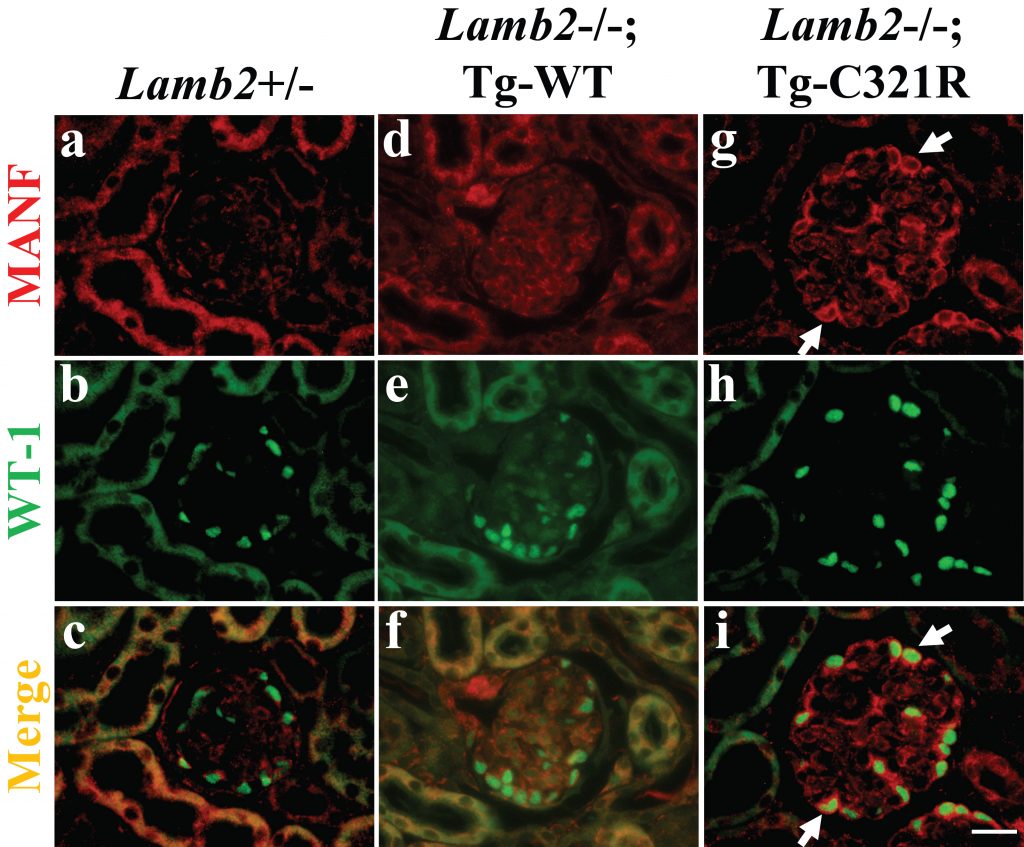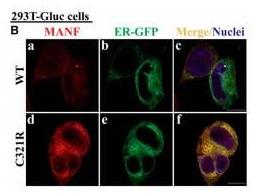Certain environmental and genetic factors can disrupt endoplasmic reticulum (ER) function and result in a situation called “ER stress”, in which misfolded/unfolded proteins accumulate in the ER lumen. Prolonged or intense ER stress contributes to the pathogenesis of a variety of glomerular and tubular diseases in humans, such as congenital nephrotic syndrome, familial focal segmental glomerulosclerosis, Alport syndrome and acute kidney injury caused by ischemia.
A new study by a team headed by Ying Maggie Chen, MD, PhD, Assistant Professor of Medicine, Division of Nephrology, reports for the first time that MANF (mesencephalic astrocyte-derived neurotrophic factor) is a urinary biomarker of ER stress-related kidney diseases. The study, published in the current issue of JASN, used mouse models of human nephrotic syndrome and induced AKI to examine MANF expression. It was found that ER stress upregulated MANF expression in podocytes and tubular cells, and that urinary MANF excretion preceded clinical or histologic manifestations of the disease or injury. First author Yeawon Kim says, “The discovery of a mechanistic biomarker is a cornerstone for the development of highly targeted treatment in the era of precision medicine.”
The research team is currently validating this biomarker in human kidney diseases associated with ER stress. Urinary MANF has the potential to identify patients at the earliest stages of certain diseases, before a kidney biopsy is even clinically indicated. The biomarker would be invaluable for early diagnosis, prediction of disease progression, and monitoring of treatment response in ER stress-related kidney diseases.
Read full article here.

